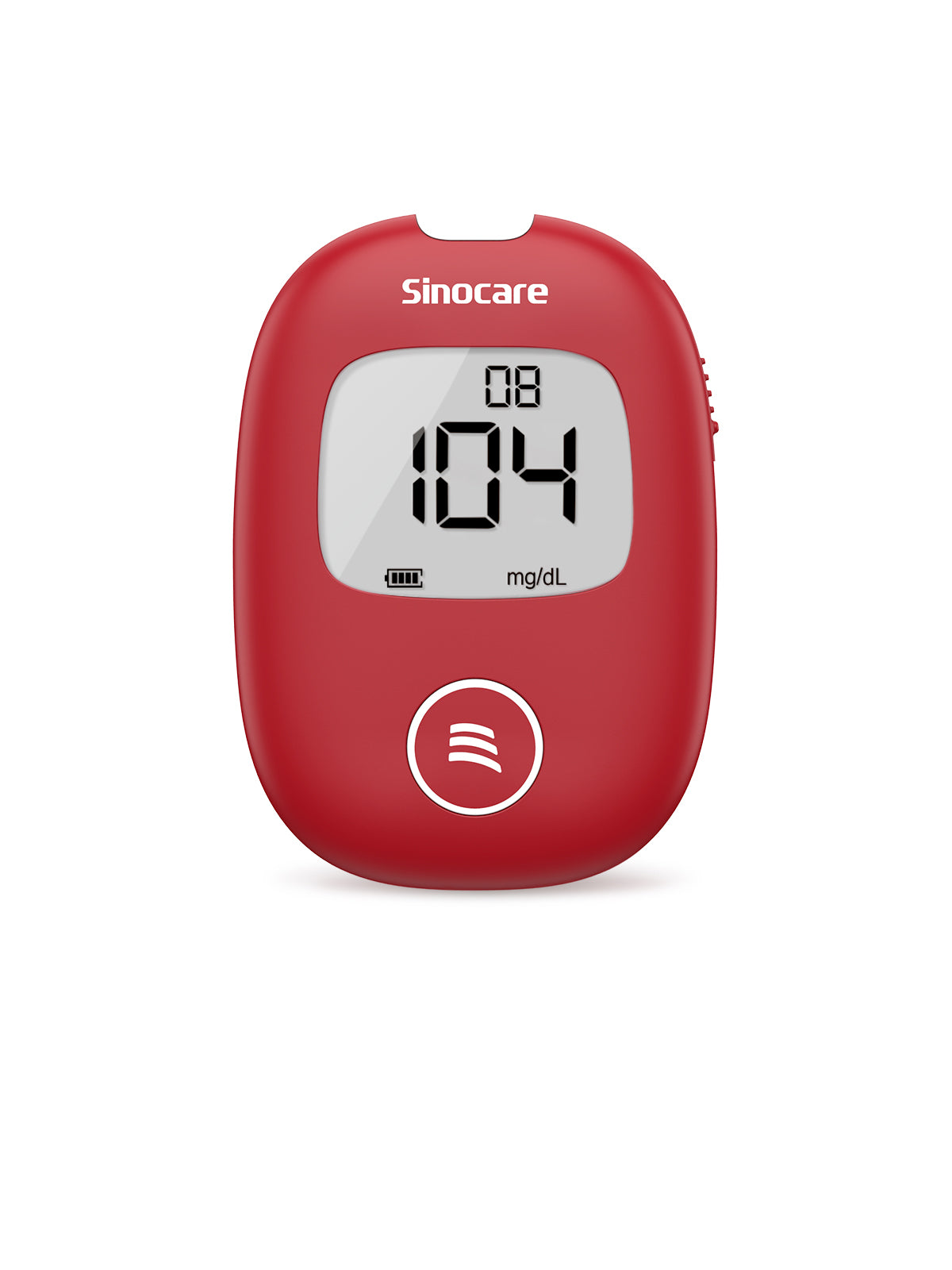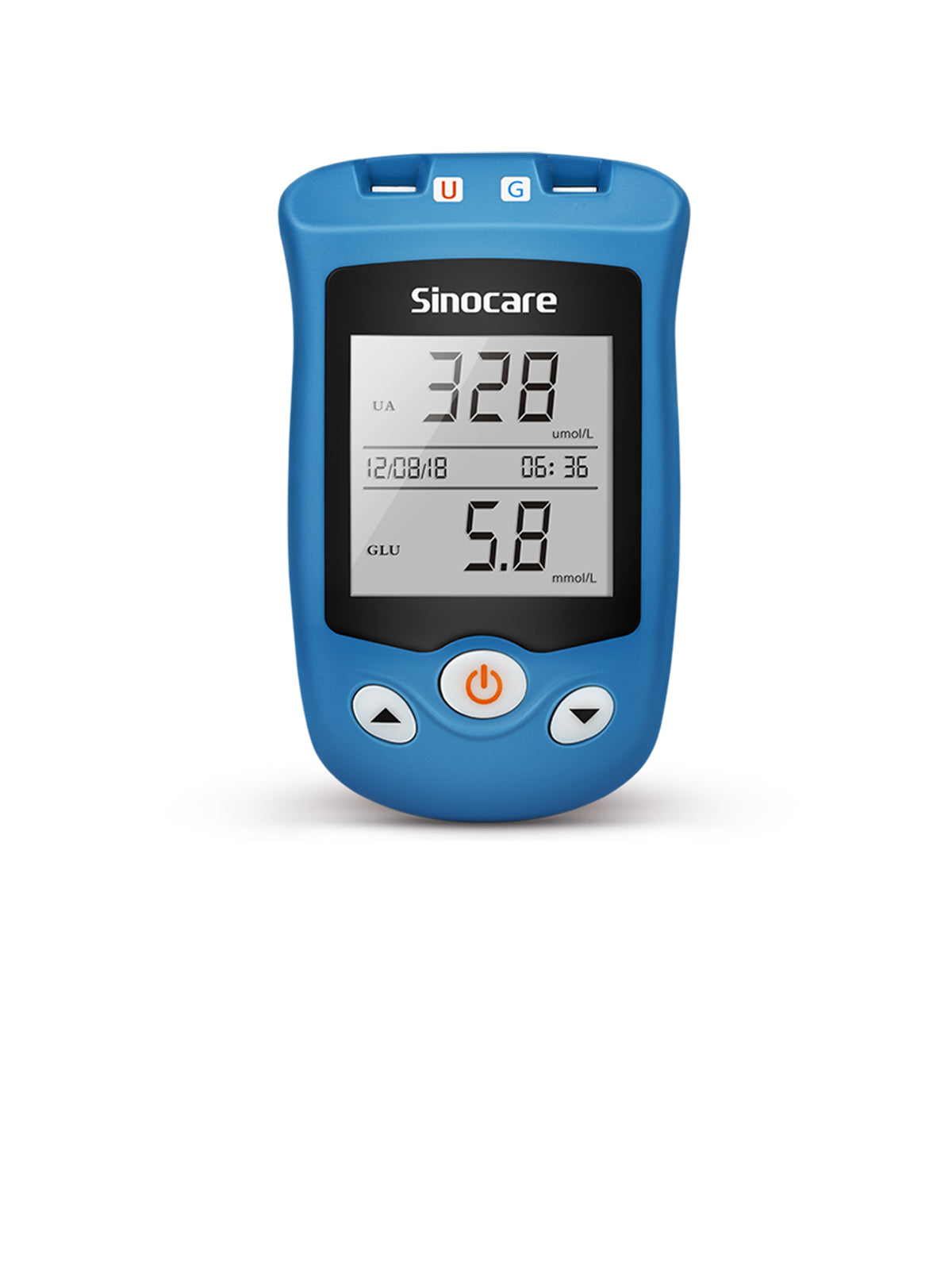Cherries are a summertime favorite—sweet, juicy, and versatile. But if you have diabetes, you may wonder: are cherries a good choice? The answer is yes—with a few considerations.
Packed with antioxidants, fiber, and vitamins, cherries can be a delicious addition to a diabetes-friendly diet when you eat them mindfully. Let’s explore why cherries are not just a sweet treat but also can be a healthy one, even if you’re managing your blood sugar.
Nutrition Facts
Let’s start with the basics. Cherries, especially fresh sweet or tart varieties, contain carbs, some nutrients, and antioxidants.
● Carbohydrates: One cup of fresh sweet cherries has approximately 22 grams of carbohydrates, primarily from natural sugars. [1]
● Fiber: Cherries provide around 3 grams of fiber per cup, contributing to better blood sugar control and improved gut health. [1]
● Glycemic Index: Cherries have a low GI of 22, meaning they cause a gradual rise in blood sugar, unlike high-GI foods that lead to rapid spikes. [2]
● Micronutrients: They’re a good source of vitamin C, potassium, and melatonin. Vitamin C supports immune health, potassium regulates blood pressure, and melatonin improves sleep—a crucial factor for diabetes management. [1]
● Antioxidants: Cherries are rich in anthocyanins, powerful antioxidants that can help combat inflammation and improve insulin sensitivity. [1]
Benefits of Cherries for Diabetics
Adding cherries to your diet also comes with several health benefits that make them particularly useful for managing diabetes.
1. Blood Sugar Management
Thanks to their low glycemic index and fiber content, cherries release glucose into the bloodstream at a slower pace than many other fruits. This helps stabilize blood sugar levels, making them a smart choice for a balanced snack or dessert — especially if you pair them with a protein source. [2][3]
2. Reduced Inflammation
The anthocyanins in cherries act as anti-inflammatory agents, which can benefit people with type 2 diabetes. Chronic inflammation has been linked to insulin resistance, and consuming an anti-inflammatory diet may help mitigate this risk. [2][3]
3. Heart Health
Cardiovascular health is a major concern for people with diabetes. Potassium in cherries may contribute to a healthy diet high in potassium and low in salt — which may help regulate blood pressure and support heart health. [2][3]
4. Better Sleep
Struggling with sleep? Melatonin in cherries may help. Improved sleep has been linked to better blood sugar control, as sleep deprivation can interfere with insulin sensitivity. [4][5]
Side Effects of Having Cherries for Diabetics
While cherries are generally safe and healthy, there are a few considerations for people with diabetes:
1. May Spike Blood Sugar
Cherries are a natural source of carbohydrates, primarily from fructose, which can impact blood sugar levels if consumed in excess. While their glycemic index is moderate, large portions can overwhelm your body’s ability to regulate blood sugar, especially for those with diabetes. To avoid spikes, it’s important to stick to recommended serving sizes—about 1 cup or 15 cherries per sitting. [1][2][3]
Balancing cherries with sources of protein or healthy fats can further stabilize blood sugar levels. For example, pairing cherries with a handful of nuts or a slice of cheese can slow down the digestion of carbohydrates, reducing the risk of a blood sugar spike. Incorporating cherries into balanced meals or snacks is key to enjoying their benefits without compromising glucose control.
2. Melatonin production and better sleep
Tart cherries aren’t just a delicious snack—they’re also a natural sleep aid. These cherries are one of the few natural sources of melatonin, a hormone that regulates your sleep-wake cycle. Consuming tart cherries or their juice has been shown to improve sleep quality and duration, making them particularly beneficial for people who struggle with insomnia or disrupted sleep patterns. [4][5]
For individuals managing diabetes, better sleep can have a positive ripple effect on blood sugar control. Poor sleep is linked to increased insulin resistance and difficulty managing glucose levels. Adding tart cherries to your evening routine, whether as a small snack or in a bedtime smoothie, can be a tasty way to support both your sleep and your overall health.
3. Improved exercise recovery
Cherries, especially tart cherries, have become a favorite among athletes and fitness enthusiasts for their impressive recovery benefits. They are rich in anthocyanins, powerful antioxidants with anti-inflammatory properties that help reduce muscle soreness and speed up recovery after intense exercise. Studies have shown that tart cherry juice can decrease muscle damage and oxidative stress, making it a natural option for post-workout recovery. [6]
For people with diabetes who incorporate exercise into their routine to manage blood sugar, cherries offer a dual benefit. Alongside aiding recovery, their natural sugars provide a quick source of energy for glycogen replenishment. Consuming cherries as a part of a balanced recovery snack—like mixing tart cherry juice with protein-rich Greek yogurt—can support muscle repair and energy replenishment while keeping blood sugar levels steady.
Tips to Eat Cherries with Diabetes
1. Pair with Protein or Healthy Fats: Combine cherries with a handful of nuts, a slice of cheese, or Greek yogurt. Protein and fat slow digestion, helping to keep your blood sugar stable.
2. Measure Your Portions: Portion control is key. Stick to about 1 cup of fresh cherries or a small handful of dried, unsweetened cherries if that’s your choice.
3. Choose the Right Type: Opt for fresh or frozen cherries without added sugars. Avoid canned cherries in syrup or overly sweetened dried varieties.
4. Incorporate Into Meals: Add cherries to salads, oatmeal, or smoothies. They also pair wonderfully with dark chocolate for an antioxidant-rich treat.
5. Monitor Your Blood Sugar: Use a blood glucose meter, like Sinocare, to understand how cherries affect your levels. This helps you fine-tune your portions and combinations.
FAQs
Can I Have Cherries Every Day with Diabetes?
Yes, cherries can be enjoyed daily in moderation. Their low GI and nutrient profile make them a great addition to your diet when balanced with other foods.
What’s the Best Fruit for Diabetes?
Low-GI fruits like cherries, berries, apples, and citrus are excellent choices. However, the “best” fruit depends on your personal preferences and how your body responds to them.
Are Black Cherries Good for Diabetics?
Absolutely. Black cherries share many of the same benefits as sweet cherries, including a low GI and high antioxidant content. Be mindful of portion sizes due to their natural sugar content.
Dried Cherries vs. Fresh Cherries: Which One Is Better?
Fresh cherries are the better choice for most people with diabetes. They contain natural sugars along with fiber and water, which are healthier for your blood sugar. Dried cherries, on the other hand, are more concentrated in sugar and calories. If you choose dried cherries, opt for unsweetened varieties and keep portions small—around 2 tablespoons on top of salad or in homemade trail mix for example.
How can I know when I should stop eating?
Portion control is key when managing diabetes. Use visual cues, like serving yourself in a small bowl instead of eating from the bag, to avoid overindulging. Pay attention to your body’s hunger and fullness signals, and check your blood sugar after eating to see how cherries affect you. This mindful approach helps ensure cherries remain a healthy part of your diet.
How Sinocare Can Help
When trying new foods or adjusting your diet, it’s essential to monitor your blood sugar. Sinocare’s advanced Safe Accu blood glucose meters make this process simple and accurate. Test your blood sugar before and after eating cherries to understand how they fit into your individual plan. With real-time insights, you can make informed decisions and enjoy cherries with confidence.
The Bottom Line
Cherries are more than just a delicious treat—they’re a nutrient-packed addition to a diabetes-friendly diet. Their low glycemic index, antioxidant-rich profile, and versatility make them a smart choice for managing blood sugar while enjoying a sweet fruit.
As with any food, moderation and mindful eating are key. Pair cherries with protein or fat, monitor your portions, and keep track of how your body responds. With tools like Sinocare, you can enjoy cherries without worrying about your blood sugar spiking. So go ahead and add some cherries to your next salad, smoothie, or snack—you’ve got this.
References
1. Pitted Dark Sweet Cherries. USDA FoodData Central. Accessed December 12, 2024.
2. Faienza MF, Corbo F, Carocci A, Catalano A, Clodoveo ML, Grano M, Wang DQ, D'Amato G, Muraglia M, Franchini C, Brunetti G, Portincasa P. Novel insights in health-promoting properties of sweet cherries. J Funct Foods. 2020 Jun;69:103945.
3. Kelley DS, Adkins Y, Laugero KD. A Review of the Health Benefits of Cherries. Nutrients. 2018 Mar 17;10(3):368.
4. Pigeon WR, Carr M, Gorman C, Perlis ML. Effects of a tart cherry juice beverage on the sleep of older adults with insomnia: a pilot study. J Med Food. 2010 Jun;13(3):579-83.
5. Howatson G, Bell PG, Tallent J, Middleton B, McHugh MP, Ellis J. Effect of tart cherry juice (Prunus cerasus) on melatonin levels and enhanced sleep quality. Eur J Nutr. 2012 Dec;51(8):909-16.
6. McHugh MP. "Precovery" versus recovery: Understanding the role of cherry juice in exercise recovery. Scand J Med Sci Sports. 2022 Jun;32(6):940-950.











Leave a comment
All comments are moderated before being published.
This site is protected by hCaptcha and the hCaptcha Privacy Policy and Terms of Service apply.